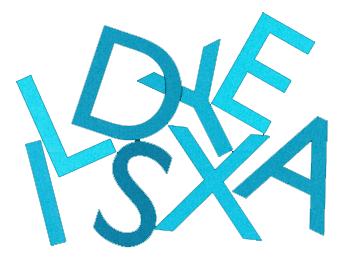Brain trauma, and the cognitive damage it can cause, is awful enough on its own. But what's the impact of a concussion on those with learning disabilities, such as ADHD and dyslexia?
The research on this topic is apparently less than voluminous, which prompted at least one researcher to look a bit more closely into this specific area of study. And what she found was that while frequently we're learning more about the devastating impact of concussions, we're not learning about whether those with a learning disability, or LD, are more susceptible to concussions, or if they experience greater harm when one is absorbed.
That's the gap Rebecca Wiseheart wants to explore further.
A professor at St. John's University in the Departments of Psychology, and Communication Sciences and Disorders, Wiseheart noticed a potential flaw in the research done almost 20 years ago on this subgroup of athletes with LDs who experienced a concussion. And she's proposed a fix.
She developed her new protocol after consulting a 1999 study published in Journal of the American Medical Association, which concluded that those with learning disabilities were more susceptible to concussions, and that if experienced the effects of one were worse.
 "The results of this study suggest that history of concussion and LD are independently related to lower baseline cognitive performance within a large, multiuniversity sample of football players," the paper states, adding that "[t]he study findings also suggest an interaction of prior concussion and LD on select neuropsychological measures. Players with a history of 2 or more concussions and LD performed significantly worse on tests of executive functioning," and that "speed of information processing relative to players with concussions who were not diagnosed with LD, suggesting an additive effect of LD and multiple episodes of concussion on lowered functioning."
"The results of this study suggest that history of concussion and LD are independently related to lower baseline cognitive performance within a large, multiuniversity sample of football players," the paper states, adding that "[t]he study findings also suggest an interaction of prior concussion and LD on select neuropsychological measures. Players with a history of 2 or more concussions and LD performed significantly worse on tests of executive functioning," and that "speed of information processing relative to players with concussions who were not diagnosed with LD, suggesting an additive effect of LD and multiple episodes of concussion on lowered functioning."
However, Wiseheart saw that while baseline screening provided for athletes to "check a box" to report a disability, the data could be construed as compromised because athletes might simply choose to hide their condition and not do so. Also, the single box lumped the two learning disabilities together, preventing future concussion researchers from differentiating between the two.
To address this, Wiseheart, in a recent report published in the Journal of Athletic Training, proposed an improved protocol for baseline screening that includes a specific test – rapid automatized naming – so that trainers can identify dyslexia themselves and not have to rely on self-reporting.
"To ensure that students with dyslexia are included in LD concussion research and identified as LD in baseline testing," she and her colleague wrote, "we provide athletic trainers with an overview of dyslexia and a preliminary screening protocol that is sensitive to dyslexia, even among academically high-achieving students in secondary school and college."
“We chose that test because it’s really predictive of dyslexia, and easy to use,” said Wiseheart, quoted in Popular Science. It's also helpful to the overall research that athletes are afflicted with ADHD and dyslexia in similar ratios to the everyone else. Meanwhile, Wiseheart is also looking to the next iteration of specialization, adding that she hopes to "look at dyslexia versus ADHD, and see if there are differences over time, and really parse out those groups.”



